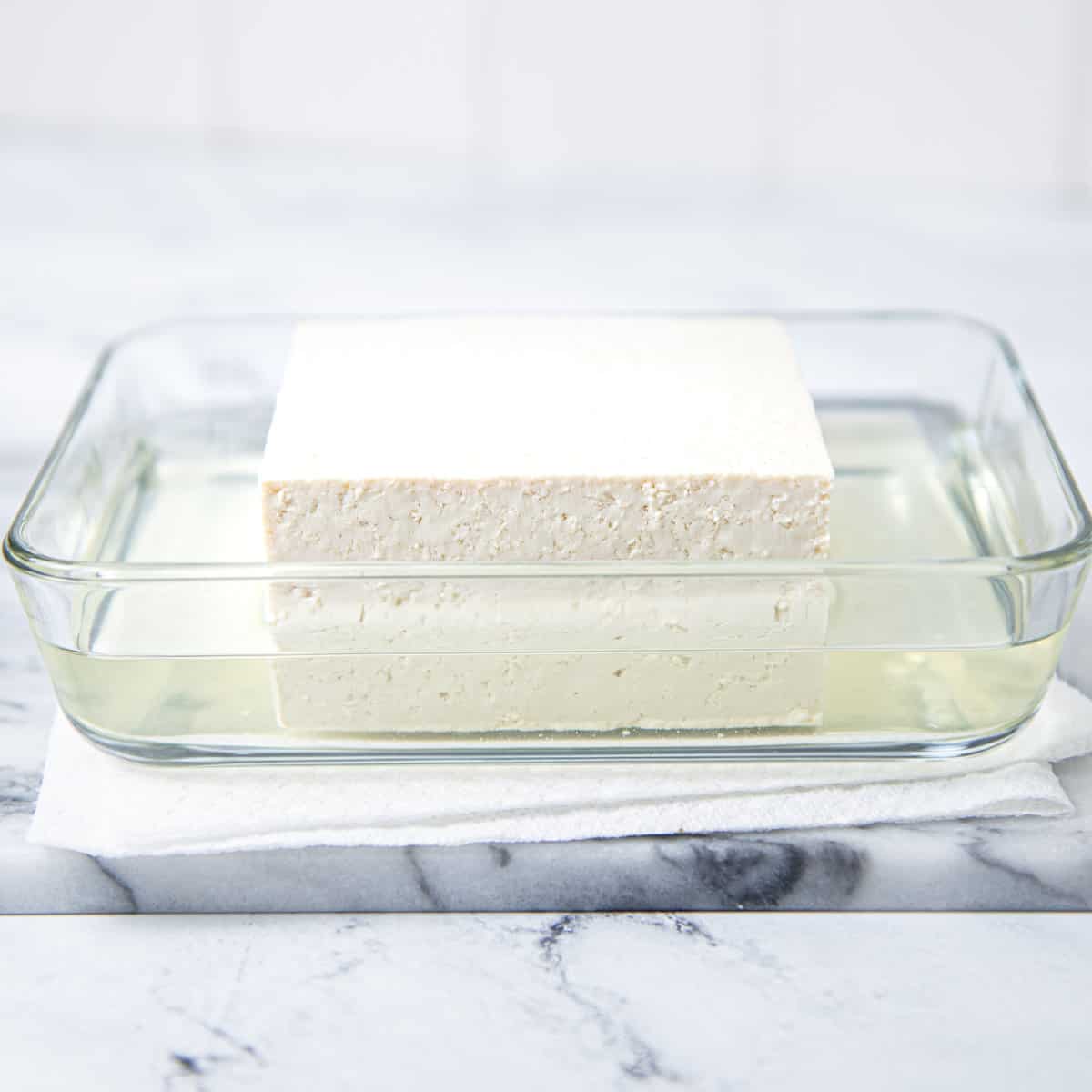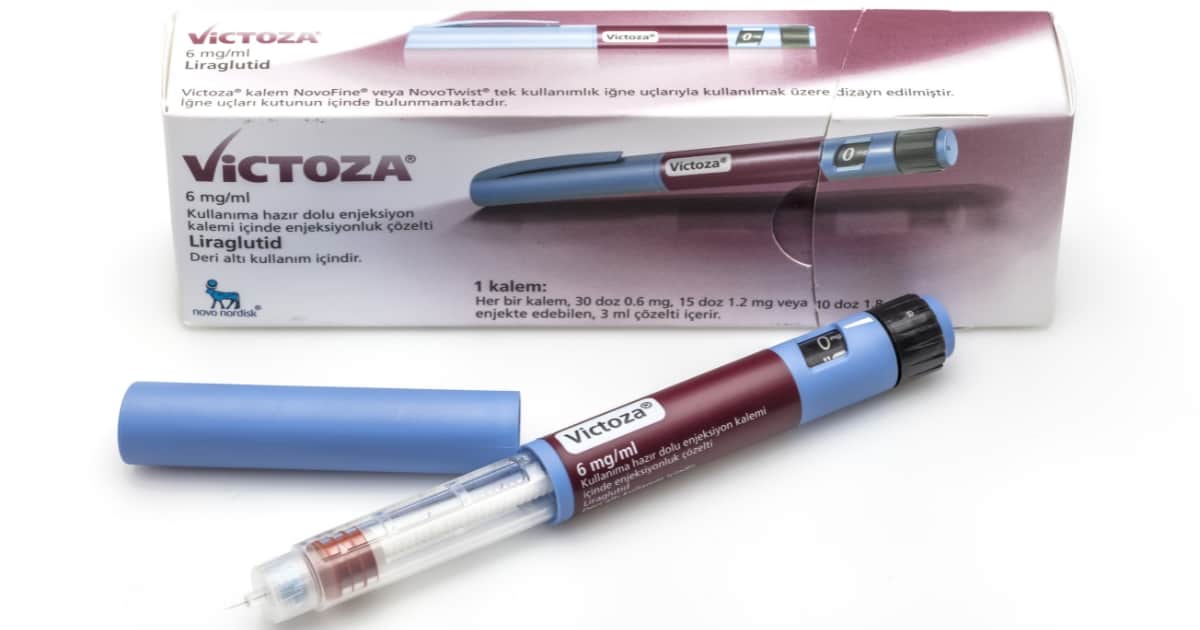

Articles
How To Store Tofu After Opening
Modified: December 7, 2023
Discover the best methods for storing tofu after opening in our informative articles. Keep your tofu fresh and delicious for longer with these expert tips.
(Many of the links in this article redirect to a specific reviewed product. Your purchase of these products through affiliate links helps to generate commission for Storables.com, at no extra cost. Learn more)
Introduction
Tofu is a versatile and nutritious plant-based protein that has gained popularity in recent years. It is made from soybeans and is a staple in many vegetarian and vegan diets. Whether you’re a long-time tofu enthusiast or a newcomer to this ingredient, it’s important to know how to properly store tofu after opening.
Proper storage not only helps to maintain the quality and taste of the tofu but also ensures its safety for consumption. In this article, we will explore various methods for storing tofu and provide tips to extend its shelf life.
Understanding the importance of proper storage techniques is crucial because tofu is a perishable food item. It can spoil quickly if not stored correctly, leading to potential foodborne illnesses.
So, let’s dive in and explore the best practices for storing tofu after opening to keep it fresh and safe for consumption.
Key Takeaways:
- Properly storing tofu after opening is crucial for maintaining its quality, taste, and safety. By following recommended storage methods, you can extend the shelf life of tofu and minimize the risk of bacterial growth and spoilage.
- Refrigerating tofu in airtight containers or wrapping it tightly in plastic wrap helps keep it fresh for a few days, while freezing tofu can significantly extend its shelf life for future use. Storing tofu in water can help maintain its moisture, but may also alter its texture slightly.
Read more: How To Store Tofu After Pressing
Why Proper Storage is Important
Proper storage of tofu after opening is essential for several reasons. First and foremost, it helps to maintain the quality and taste of the tofu. Tofu is known for its delicate flavor and smooth texture, and improper storage can lead to changes in its taste and texture, making it less enjoyable to eat.
Moreover, storing tofu correctly can help prevent the growth of harmful bacteria. Tofu is a high-moisture food item, which makes it a favorable environment for bacterial growth. If not stored properly, bacteria can multiply quickly, leading to foodborne illnesses.
In addition, proper storage techniques can help to prevent tofu from developing an off odor or absorbing strong flavors from other foods in the refrigerator. Tofu has a neutral taste, and it readily absorbs the flavors of the ingredients it is cooked with. Storing tofu in airtight containers or wrapping it securely can help maintain its original flavor and prevent it from picking up unwanted odors.
Furthermore, proper storage can help to reduce food waste. Tofu is often sold in larger packages, and it’s common for home cooks to use only a portion of the tofu at a time. By storing the remaining tofu correctly, you can extend its shelf life and avoid having to discard unused portions.
Overall, proper storage of tofu is important to maintain its quality, prevent the risk of foodborne illnesses, preserve its natural flavor, and reduce food waste. By following the recommended storage techniques, you can ensure that your tofu stays fresh and safe for consumption for an extended period.
General Tips for Storing Tofu
When it comes to storing tofu, there are some general tips that can help keep it fresh and safe to eat. Follow these guidelines to ensure optimal storage:
- Check the expiration date: Before purchasing tofu, check the expiration date on the packaging. Choose the freshest option available to maximize its shelf life.
- Keep it refrigerated: Tofu should always be stored in the refrigerator, even if it hasn’t been opened yet. The cool temperature of the fridge helps to slow down bacterial growth and maintain the freshness of the tofu.
- Use airtight containers: Once opened, transfer any unused tofu to an airtight container. This prevents the tofu from absorbing odors from other foods in the refrigerator and helps to maintain its flavor.
- Wrap it in plastic wrap: If you don’t have an airtight container, wrap the tofu tightly in plastic wrap. This helps to prevent moisture loss and protect the tofu from contaminants.
- Store it on a clean shelf: Place the tofu on a clean shelf or in a designated area of the refrigerator to avoid cross-contamination with other foods.
- Keep it away from strong-smelling foods: Tofu easily absorbs odors, so it’s best to store it away from strong-smelling foods like onions, garlic, and certain spices.
- Label the container: If storing multiple types of tofu or different stages of tofu (such as firm and silken), label the container with the date and type for easy identification.
Following these general tips will help ensure that your tofu remains fresh, flavorful, and safe to consume for an extended period. Now, let’s explore specific storage methods for tofu.
Refrigerating Tofu
Refrigeration is the most common method of storing tofu after opening. Follow these steps to properly refrigerate your tofu:
- Drain excess water: Before refrigerating tofu, it’s important to drain any excess water. If the tofu is packed in water, remove it from the packaging and gently press down on the tofu to release the water. Excess moisture can accelerate spoilage, so it’s crucial to remove as much water as possible.
- Wrap in paper towels: After draining the water, wrap the tofu in a few layers of paper towels. The paper towels will absorb any remaining moisture and help keep the tofu dry.
- Place in an airtight container: Transfer the tofu to an airtight container or resealable plastic bag. The container should be large enough to hold the tofu without squishing or crushing it.
- Refrigerate at the correct temperature: Store the tofu in the refrigerator at a temperature of 40°F (4°C) or below. This low temperature helps to slow down bacterial growth and keep the tofu fresh for a longer duration.
- Check regularly: It’s a good practice to check the tofu regularly for any signs of spoilage, such as a foul odor, sliminess, or mold. If you notice any of these signs, discard the tofu immediately.
Refrigerated tofu can typically last for 3-5 days when stored properly. However, be aware that tofu quality will deteriorate over time, so it’s best to consume it as soon as possible.
Now that you know how to refrigerate tofu, let’s explore another storage method: freezing tofu.
Store opened tofu in a container filled with water and keep it in the refrigerator. Change the water every day to keep the tofu fresh for up to a week.
Freezing Tofu
Freezing tofu is an excellent option if you don’t plan to use it within a few days. Freezing not only extends the shelf life but also changes the tofu’s texture, making it chewier and more porous. Here’s how to freeze tofu:
- Drain and press tofu: Similar to refrigeration, start by draining any excess water from the tofu. Then, wrap the tofu in several layers of paper towels or clean kitchen towels. Place the wrapped tofu on a plate or in a shallow dish, and put a weight on top to press it. This helps to remove more moisture and improve the tofu’s texture when frozen.
- Wrap in plastic and freeze: Once the tofu is drained and pressed, wrap it tightly in plastic wrap or place it in a resealable freezer bag. Make sure to remove as much air as possible to prevent freezer burn. Proper wrapping helps to protect the tofu from moisture loss and freezer odors.
- Label and store in the freezer: Label the wrapped tofu with the date and place it in the freezer. It’s a good practice to store it in an area where it won’t be crushed or damaged. Frozen tofu can be stored for up to 3 months, but for the best quality, try to use it within 1-2 months.
- Thaw before using: When you’re ready to use the frozen tofu, remove it from the freezer and allow it to thaw in the refrigerator overnight. Thawing in the refrigerator ensures a gradual and safe thawing process. Once thawed, squeeze out any excess liquid before using the tofu in your recipes.
Keep in mind that freezing tofu changes its texture, making it more suitable for recipes that require a firmer and chewier texture, such as stir-fries, grilling, or baking. The thawed tofu will have a spongier consistency, allowing it to absorb flavors more effectively.
Now that you know how to freeze tofu, let’s explore another storage method: storing tofu in water.
Read more: How To Store Tofu
Storing Tofu in Water
Another method for storing tofu after opening is to store it in water. This method helps to keep the tofu hydrated and fresh for a longer period. Here’s how to store tofu in water:
- Drain excess water: Start by draining any excess water from the tofu packaging. Remove the tofu from its original packaging and discard the liquid.
- Prepare a container: Fill a clean and airtight container with cold water. The container should be large enough to fully immerse the tofu.
- Submerge tofu in water: Gently place the tofu into the container, ensuring it is fully immersed in water. The water helps to maintain the tofu’s moisture and prevent it from drying out.
- Secure the container: Close the container tightly to prevent any leakage or contamination. It’s also a good idea to place the container on a tray or in a shallow dish to catch any potential spills.
- Refrigerate: Store the container with the tofu in the refrigerator at a temperature of 40°F (4°C) or below. This will help to slow down the bacterial growth and maintain the freshness of the tofu.
- Change the water: For optimal results, it’s recommended to change the water every day or every other day. This helps to keep the water clean and prevent the growth of bacteria.
Storing tofu in water can help keep it hydrated and fresh for longer. However, it’s important to note that this method may affect the tofu’s texture, making it slightly softer. Therefore, it’s best to use tofu stored in water in recipes where a firmer texture is not required, such as in soups or stews.
Now that you know how to store tofu in water, let’s explore some additional tips to help extend the shelf life of tofu.
Tips for Extending Tofu Shelf Life
To maximize the shelf life of tofu and prevent it from spoiling prematurely, here are some additional tips to keep in mind:
- Use airtight containers or wrapping: Whether refrigerating, freezing, or storing tofu in water, always use airtight containers or tightly wrap it in plastic wrap. This prevents moisture loss and protects the tofu from absorbing odors and flavors from other foods.
- Store unused portions separately: If you have leftover tofu from a package, store the unused portion separately to avoid cross-contamination. This is especially important if the tofu has been cut or exposed to air.
- Handle with clean utensils: When serving or removing tofu from its packaging, use clean utensils to minimize the risk of introducing bacteria or contaminants.
- Store in the coldest part of the refrigerator: Place tofu in the coldest part of the refrigerator, usually the back or bottom shelf. This helps to maintain a consistently cool temperature and prolong its freshness.
- Don’t store in the refrigerator door: Avoid storing tofu in the refrigerator door, as this area is subjected to temperature fluctuations from frequent opening and closing, which can affect the tofu’s quality.
- Rotate stock regularly: If you frequently use tofu, rotate your stock by placing the newer packages at the back and the older ones in front. This ensures that you use the tofu with the closest expiration dates first.
- Follow proper food handling practices: When handling tofu, always wash your hands before and after and practice good hygiene to prevent any contamination.
Following these tips will help extend the shelf life of tofu and ensure that it remains fresh, safe, and delicious for consumption.
Now, let’s conclude this article.
Conclusion
Properly storing tofu after opening is crucial for maintaining its quality, taste, and safety. By following the recommended storage methods, you can extend the shelf life of tofu and minimize the risk of bacterial growth and spoilage. Refrigerating tofu in airtight containers or wrapping it tightly in plastic wrap helps keep it fresh for a few days, while freezing tofu can significantly extend its shelf life for future use. Storing tofu in water can help maintain its moisture, but may also alter its texture slightly.
In addition to storing tofu correctly, it’s important to handle it with clean utensils, store it in the coldest part of the refrigerator, and avoid cross-contamination with other foods. By implementing these tips, you can ensure that your tofu remains at its best, maintaining its flavor, texture, and overall quality.
Remember to check the expiration date before purchasing tofu and always be vigilant for signs of spoilage such as a foul odor, sliminess, or mold. If you notice any of these signs, it’s best to discard the tofu to avoid any potential health risks.
Whether you’re a tofu enthusiast or a newcomer to this versatile protein, proper storage practices are essential to maximize its freshness and taste. So, make sure to apply these tips and enjoy your tofu in a variety of delicious recipes!
With the knowledge gained from this article, you can confidently store your tofu to ensure its longevity and maintain its quality for your culinary creations.
Frequently Asked Questions about How To Store Tofu After Opening
Was this page helpful?
At Storables.com, we guarantee accurate and reliable information. Our content, validated by Expert Board Contributors, is crafted following stringent Editorial Policies. We're committed to providing you with well-researched, expert-backed insights for all your informational needs.















0 thoughts on “How To Store Tofu After Opening”